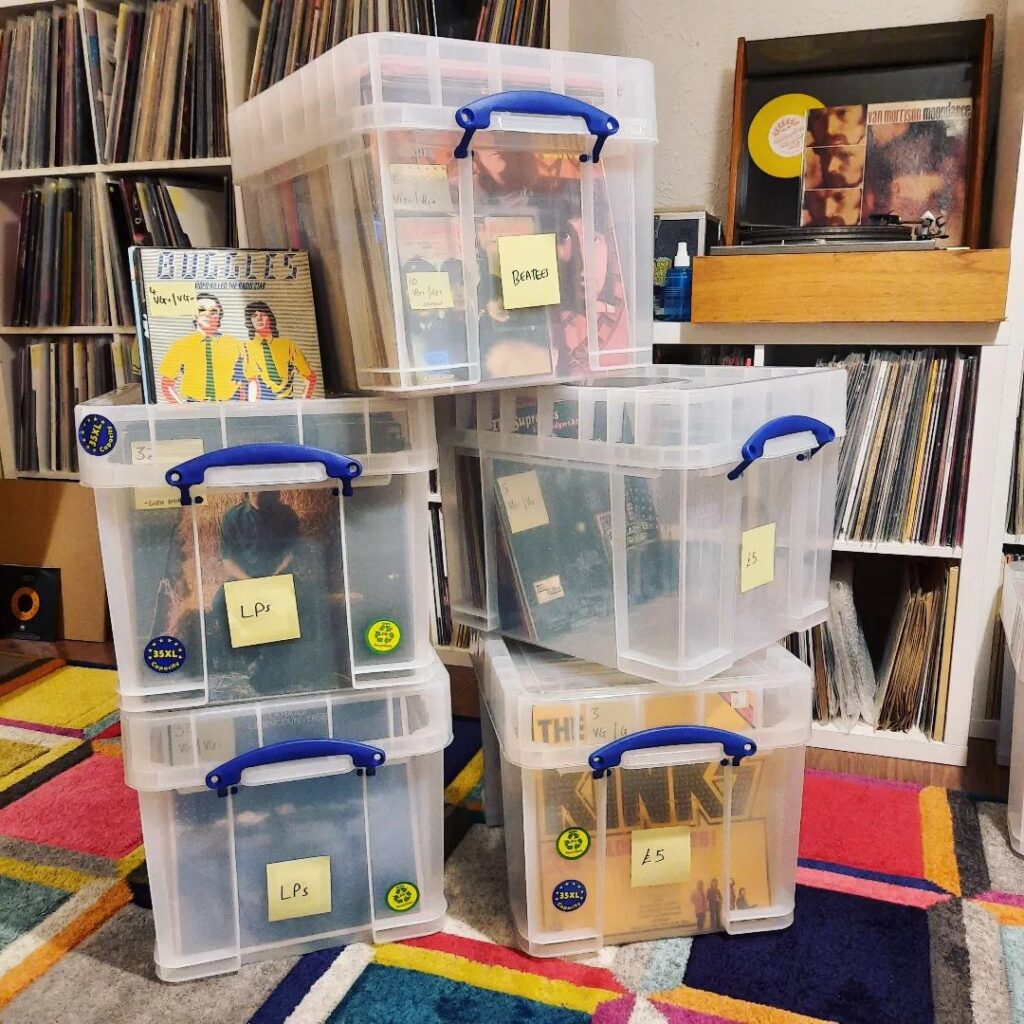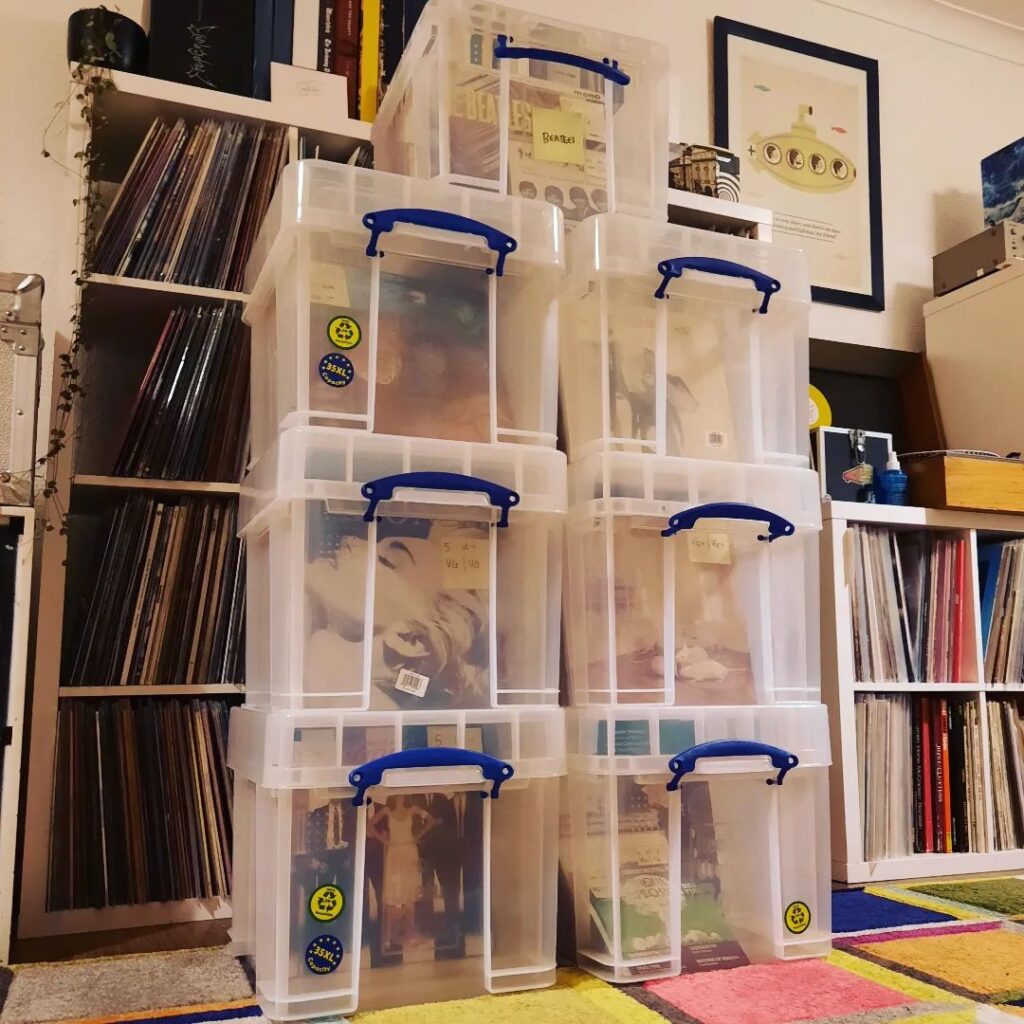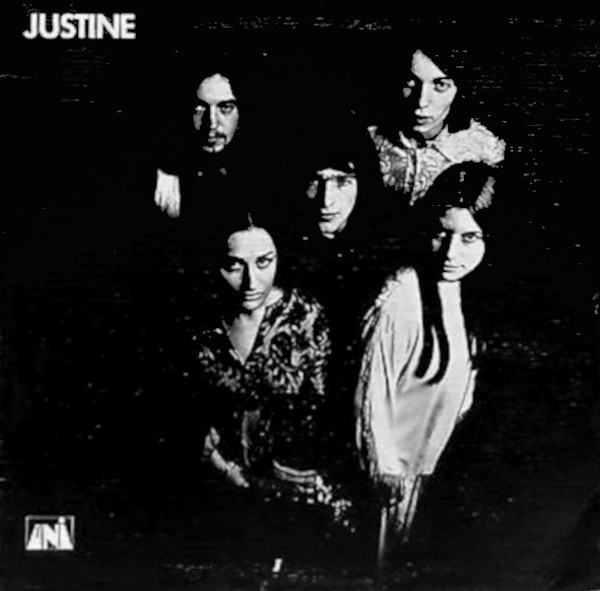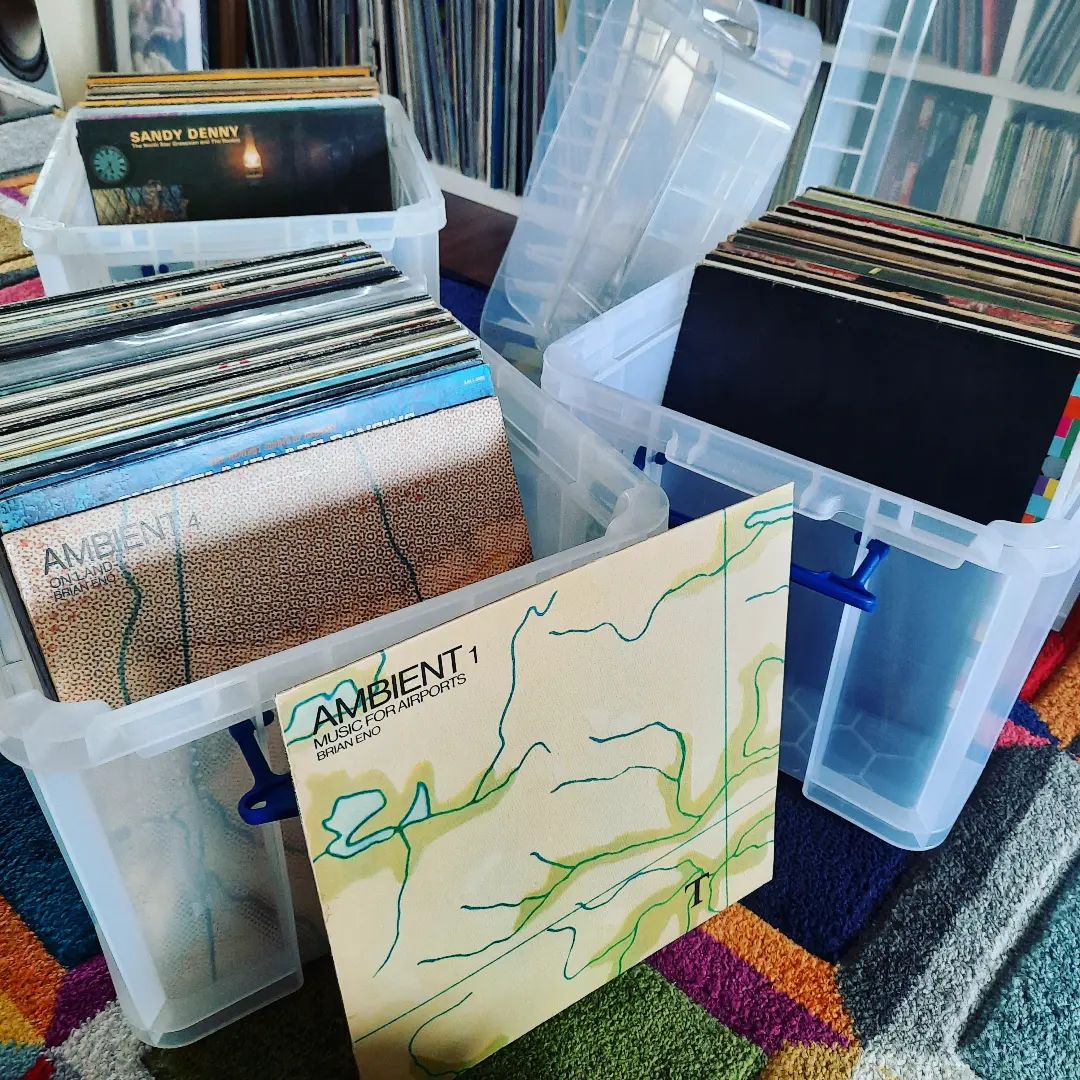Fresh stock is essential to the success of any record dealer. Groovy Times probes Joel De’ath of Brighter Day Records about how he approaches buying record collections out in the wild
Brighter Day Records is a record shop with a difference. Rather than sit in a shop for seven or eight hours a day waiting for people to come to him, founder/owner Joel De’ath’s has a direct line to his vinyl-hungry customers and sells records from home via a regular Sunday night flick-through on a dedicated WhatsApp group. Of course, to sell ’em you’ve first got to buy ’em and in this extended Q&A Joel shares some insights into his approach to buying record collections.
How did you initially come up with the concept of Brighter Day Records?
I used to run a record shop with a friend of mine called JJJ in Loughton, Essex. I was training to be a psychotherapist and that was taking up a lot of my time and money, which made me realise that I needed to take a different approach to buying and selling records. We decided to split the shop in two and James now runs Slab Records.
I was about to sign a lease on a premises but had second thoughts. Did I want to sit in a shop and wait for people to come to me while spending thousands plus pounds on rent? That’s when I decided to run the operation from home and use social media to sell the records. I chose to call my shop Brighter Day after the last song on Spilt Milk by Jellyfish, one of the greatest albums ever made. Now three years later and I’m selling hundreds of albums a month and buying in the region of 2,000. Not only does the business continue to grow, I’m also keeping a proportion of the records that I buy for myself and I’m building a great, motherfucking collection.
Is there a connection between being a psychotherapist and buying/selling records?
People are collecting things connected to their youth. This is where my psychotherapy brain kicks in. They’re trying to recapture something. Trying to reconnect with a part of themselves that they’re not connected with anymore. Trying to hold onto a feeling that may have long since gone. When they hold something that takes them back to that moment they’re brought comfort and a bit of calm. A lot of people are like that with vinyl records. And the great thing about vinyl records is that you can also play them. Something that is genuinely real. Records outlast all of us. My job is to find the records that aren’t loved anymore, give them a bit of TLC and then find them a new home. I feel like I’m playing a part in the record’s journey and I absolutely love that. A record collection is part of a person’s life. I get to see many people’s lives through their record collections, and that feels like an honour.
How often do you venture out and see collections?
I get a few calls and emails a day, but really I will only go see between two or three collections a week. The vast majority of people who contact me are those with not very good records or those who have sold the good ones and just have a big pile of unwanted records left. Sometimes people have nice collections but live quite far away and so, by the time I add in petrol and my time getting there and back, it’s not worth it. There’s never a set pattern to what I can and can’t do, but you need to weigh up all these things.

Why do people sell their record collections?
More often than not it’s older people who just don’t listen to their records anymore and their kids have no interest in them. I often get calls from people who say they’re moving house and their vinyl hasn’t left the boxes in which they’ve been stored since the previous house move, and they don’t want to move them again. There’s also a lot of bereavement in this job, so people who have inherited a collection and don’t know what to do with it. I’ve also looked at a couple of collections from people who are dying and want to sort out their records before they pass on. I’m actually getting more and more people who were enthusiastic about vinyl five years ago, bought themselves a shitty turntable and a bunch of new pop records but now aren’t into it anymore. They want me to buy their Adele records, but that’s not gonna happen.
Are people aware of what they’re sitting on?
Everybody has a different opinion as to what they think their collection is worth. There’s always this stomach-dropping moment when you walk into to see a collection and you see a beat-up, scratched version of Sgt. Pepper and the seller waves it at you and says, “I saw a copy of this sell for £1,000 on eBay”. And you’re thinking “Yeah, there very well may have been, but it ain’t gonna be this for this copy.” That’s always a bit heartbreaking and often means going through that collection will be a long slog. There are always those people who have spent half an hour on the internet and then tell me their battered copy of The Moody Blues is worth £30 when I know for a fact it’s probably worth £3 at best.
Has the vinyl revival heightened expectations?
Yep, without a doubt. People see a couple of shabby Black Sabbath albums sell on Dickinson’s Real Deal for crazily high amounts and they expect the same from me. Or they will read somewhere that Ringo Starr sold his copy of The White Album for in excess of a million and they want the same for their 1983 French stereo repress.
Do you have an ideal scenario when buying collections?
I’m always looking for a genuine collection, not just a set of records. My favourite type of collection is when someone says, “I know what these records are worth, let’s talk percentages, how much would you like to buy it for?” Very occasionally I will walk in and someone will say, “I’ve inherited these records, I’ve no idea of what they are worth, I’ve no interest in them, can you just take them away for me? I don’t care what you offer.” Then that’s down to a moral judgment. I could probably walk out with them for £100 and they’re worth £1,000. But there’s something about my psychotherapy training that gives me a sense of honesty and integrity. I sometimes wish I didn’t have the standards I live my fucking life by. I’d be a lot richer if I didn’t have them! But, then again, I like to sleep at night.
There’s even been occasions when I’ve bought a record and brought it home and realised that this is a lot more valuable than I thought, and I’ve gone back and given the seller a bit more money. Because very often they will then make a call to a friend of theirs who is sitting on a collection and I’ll get the opportunity to buy it.

Are there any types of records that you are keen to avoid?
I like to keep the types of collections I buy as varied as possible. When it comes to albums I’ll buy pretty much anything apart from easy listening and classical. That said, if it’s late 1950s classical LPs then I’ll certainly take a look as some of the early white label Columbia, unboxed Decca and HMV are sought after. Any classical later than that I’ve got no interest in. Easy listening to me is just charity shop fodder.
What I have turned down a lot just recently is a lot of dance collections, basically because I don’t know what I’m looking at. Any other musical genre then I’ve got an idea, but I’m just looking at a bunch of dance 12-inch singles I haven’t a clue. Often I look at a dance collection, look at the person selling them and say, “I have no idea what I’m looking at. I’m going to offer you a rubbish amount of money which you should turn down and sell them to someone else.” Sometimes the person is so desperate to get rid that they’ll take my rubbish money. When it comes to any other genre then I’m always super-interested in LPs. Anything else, bring it on.
Have you been turned on to new genres?
I worked 20 years in the industry and thought I had a good idea about music. And I actually know fuck all. Buying record collections has helped me delve into new genres. It’s not just discovering bands that I haven’t heard of before, I’ve discovered entire musical genres I didn’t know existed! Being introduced to new genres of music is one of the most exciting things there is when it comes to running a record shop. It’s been such an eye-opening experience. I sometimes wish I was joining the music industry now as I have so much more knowledge.
I’ve really got on board with the late 1960s, early 1970s folk and early progressive music scene in the UK. There are some glorious bands from that era. Bands that just recorded a couple of LPs and split up. If I’m flicking through records and I see some early Deram or Vertigo swirls, I know I’m going to enjoy the next few hours going through the collection. For me, they’re almost always the sign of a proper collection with proper records.
Do you ever cherry-pick a collection or is that not on?
I rarely cherry-pick as I think it’s unfair on the person that you’re buying from. Because, ultimately, what you are doing is taking out all the value and leaving a big pile of crap. So, I usually buy the entire record collection. The only time I might cherry-pick is when I can’t afford to buy the whole collection but want to make an offer on some of the records. There are times when I say to a seller I’m interested in 20% of your records and will make an offer on them and I’ll then volunteer to take the other 80% to the charity shop. Which is a bit like cherry-picking, but then doing them a service by taking them all of their hands.
The real challenge is when there’s one absolute standout record among a lot of average ones. That happened to me recently when I went and bought a collection that had a first pressing of Never Mind The Bollocks with the poster and in immaculate condition. That record alone is worth a lot of money, and then there were a lot of very average records in very average condition. So, effectively, what I’m doing is buying that one record and quoting a token amount for the rest. I quoted the seller the amount and they said, “How much would you pay without the Pistols?”
When faced with a big collection do you check it all then and there?
It kind of depends. There’s never a set rule. If it’s a couple of hundred records then I’ll take a look and go through each one. I rarely get the chance to play any of them but I can do a visual grade. Then what I’m doing in my head is totting up a total. I’ve bought collections that run into the thousands and that’s different. Sometimes I’ve gone can I take these, give me a week and I’ll come back to you with a price. And on other occasions, I’ll check a percentage of them and make an offer.
If we’re talking four figures, both records and offer, then I have to take my time to go through them. So, I’ll take out the key ones and really check the condition. I very rarely haggle. I have at times made an offer and the seller has asked to go higher and I’ll say, “No, I’m happy with my offer.” I’ve walked away from collections. I have to draw a line. When it comes to haggling I like to think that I’m upfront and genuine. My offer is my offer. If I go in at, say, 20% below my offer in anticipation of them coming back to me for more money then it wasn’t really my final offer and I pride myself in being honest. That’s not to say it hasn’t happened and my arm has been twisted.
Are you Discogs embodied in human form?
I’ve been doing this long enough now that I can get a good idea of what I’m looking at pretty quickly, more often than not if it’s a 1960s, 1970s, or 1980s rock collection then I know what I’m looking at. It’s the stuff that I don’t recognise that interests me the most. My logic is that if I’ve not seen an album before then it must be interesting. A lot of the time it ends up being a 50p charity shop classic but it could be a rarity, so I take my time. I’ve no qualms about checking Discogs on my phone when looking at certain records.
Over the years you begin to pick up things. I know what labels to look out for and certain pressings. If you see an early Beatles’ Revolver mono, you want to check the matrix number on side two because the first pressing has a withdrawn mix of Tomorrow Never Knows; when you’re picking up a copy of Dark Side Of The Moon you want to look out for a solid blue triangle; with an early Please Please Me you look out for a gold and black Parlophone label. Some are obvious, some not so much. One I always keep in my mind is Van Der Graaf Generator’s The Least We Can Do Is Wave To Each Other the very first press had a poster and a withdrawn mix so there’s not many out there. That could be worth a couple of hundred. I pick up all these tips but I’m always learning because you’re always faced with genres of music that you’re not so familiar with.
That’s not to say I haven’t fucked up and I have fucked up. In the early days, I remember seeing a collection and not clocking some of the valuable records, I made an embarrassingly low offer to which I got the response, “Are you fucking kidding me?”

Have you ever overestimated the value of a collection you’ve bought?
I always remember this one record collection I bought. The seller had some really nice Pink Floyd MoFi vinyl. He was a proper audiophile and told me he’d sold some of his vinyl on eBay for many, many hundreds. I thought this guy really knows what he’s got. There was lots of19 80s indie, Smiths and Bunnymen stuff, some Beatles, some nice classical and there was also this MoFi part of the collection. I made him an offer and he was like, “Really? Fucking hell, that’s great. I never thought I’d get half as much as that!” Which wasn’t exactly the response I was hoping for. I still made money selling that collection, but I would have preferred to make more.
Where is the furthest you’ve travelled and come back with an empty boot?
I was contacted by a seller in Liverpool who had inherited a couple of thousand records from his father. He sent me a bunch of photos and I could see Pink Floyd, The Beatles and so on. Liverpool is a lot further than I’d normally travel but if it’s a genuine, authentic 1960s-70s record collection then I’m always interested. I made arrangements to go see them by train and for a friend to pick them up and drive them back down to Essex if I bought them. But when I walked in within the first 10 minutes I knew the record collection wasn’t for me, because while it was Pink Floyd, The Beatles, they were all modern pressings. I’d assumed incorrectly that because it was this guy’s dad that he was buying records back in the day but he wasn’t. He was a new vinyl collector and while I knew that there was profit to be had, my customers love authentic pressings. It would have been a lot of capital into stock that I’d have much less fun selling. So, despite travelling all that way, I was up-front about it and told him that his collection was not for me. I then had to walk around Liverpool for the next four hours before catching my return train. But what I was able to do was put a message out on social media that there was a really nice collection in Liverpool for sale and the guy sold it within three days to a record shop in Leeds.
How do you decide what to keep?
For me it comes down to scarcity. When am I next going to find a copy of this? And what is its condition? The sweet spot is an album that is scarce and but also a great piece of music. I could buy a collection and see a really nice copy of, say, Fairport Convention’s debut album. It’s something I’d see very, very rarely and that would prompt me to keep that one and sell the one I’ve already got. Saying that, I do sell records from my own collection because, if you include 45s, it’s about 2,500 records and that’s enough. I can’t be too obscene.
I once found an original copy of Vashti Bunyan’s Just Another Diamond Day on Philips in a cupboard under somebody’s stairs. The guy had absolutely no idea that his record collection was worth money and when I offered him a considerable amount of money he couldn’t believe it and told me he was just about to throw them away. I kept that one.
Finders Keepers
A clear perk of buying a record collection is having first dibs on the vinyl you’re purchasing, Joel shares the top five finds that remain on his shelves.
Just Another Diamond Day
Vashti Bunyan
Philips
6308 019
William It Was Really Nothing
The Smiths
Rough Trade
RT 166 (Test pressing)
Spunk
Sex Pistols
Blank
BLA 169 (Stencil cover)
Sgt. Pepper’s Lonely Hearts Club Band
The Beatles
Parlophone/Nimbus
PCS 7027
Justine
Justine
Uni
UNLS 111

